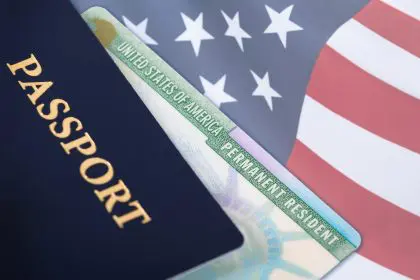Traveling with a gun or rifle presents unique challenges and responsibilities. Whether you’re heading out for a hunting trip, participating in a shooting competition or simply want to carry a firearm for personal protection while traveling, understanding and adhering to the essential requirements is crucial for a smooth and lawful journey. This article aims to provide a comprehensive guide to help you navigate the complexities of traveling with a firearm, ensuring your trip is both safe and compliant with applicable laws.
The basics of traveling with a firearm
Traveling with a gun or rifle is not as straightforward as packing regular luggage. It requires meticulous planning and an understanding of the laws that govern the transportation of firearms across different jurisdictions. The focus of this guide is to outline five essential requirements that gun owners must know before traveling with their firearms. These requirements are designed to help travelers ensure they are not inadvertently breaking any laws and that their travel with firearms is as hassle-free as possible.
1. Know the law
The first and foremost requirement is to have a thorough understanding of the laws related to firearms in your departure location, destination and any places you may pass through during your journey. Laws regarding firearm transportation vary widely from one country to another and even among states within countries such as the United States. It’s essential to research and comprehend these laws to avoid unintentional legal issues.
U.S. federal and state regulations
In the United States, for example, the Transportation Security Administration (TSA) has strict guidelines for transporting firearms and ammunition on commercial airlines. Similarly, the laws of each state can differ significantly regarding the possession and transportation of guns. Always check the latest regulations well in advance of your trip.
2. Proper storage and locking mechanisms
Secure storage is a critical aspect of traveling with firearms. Guns and rifles must be stored in a hard-sided, lockable case as a minimum requirement by most transportation authorities, including the TSA. The case should be durable and provide adequate protection against damage. Using TSA-approved locks is advisable as it allows security officers to inspect the luggage without damaging the lock or case.
Safe transportation of ammunition
Ammunition should also be securely packed in a way that prevents it from moving around inside the container. Some regulations specify that ammunition must be stored in the original packaging or a container designed to hold ammunition safely.
3. Declare your firearm
When traveling, especially by air, declaring your firearm at the check-in counter is mandatory. Failure to declare a firearm in checked baggage can result in criminal charges. The declaration process involves filling out a form that states you are traveling with a firearm and verifying that it is unloaded and securely packed according to regulations.
4. Understand international travel requirements
Traveling internationally with a firearm introduces another layer of complexity due to varying international laws and treaties. Before planning a trip abroad with a firearm, it’s crucial to research and understand the specific entry requirements and permits needed for your destination country, as well as any countries you might transit through.
International permits and customs
Obtaining the necessary permits can be a lengthy process, requiring detailed documentation and, in some cases, invitations from host entities in the destination country. Additionally, be prepared to deal with customs declarations and inspections at your destination.
5. Insurance and liability
Carrying adequate insurance that covers your firearm during travel is highly recommended. Insurance can protect against loss, theft or damage to your firearm and provide liability coverage in case of an accidental discharge or other mishap. Reviewing your existing policies and considering additional firearm-specific insurance is a prudent step before traveling.
Gun travel preparedness: Ensuring compliance and safety
Traveling with a gun or rifle demands a high level of responsibility and adherence to legal requirements. By following these five essential requirements, you can ensure that your journey with a firearm is both compliant with the law and as smooth as possible. Always prioritize safety, legality and preparedness when planning to travel with firearms. Remember, the key to a hassle-free trip with a gun or rifle lies in thorough preparation and an unwavering commitment to compliance and safety.
FAQs
Q: Can I carry my firearm on my person during a flight?
A: No, federal regulations prohibit passengers from carrying firearms on their person or in carry-on luggage during a flight. Firearms must be checked in accordance with airline and TSA guidelines.
Q: What happens if I don’t declare my firearm when traveling?
A: Failing to declare a firearm in checked luggage can result in criminal charges, fines and confiscation of the firearm. It’s a serious violation of federal and potentially state laws.
Q: Can state laws affect my ability to travel with a firearm?
A: Yes, state laws can significantly impact your ability to transport a firearm across state lines. Some states have stringent regulations that could affect travelers passing through, even if the state is not their final destination.
By adhering to these guidelines and conducting thorough research before your trip, you can ensure that traveling with your firearm is a safe and legally compliant experience.
This story was created using AI technology.

















